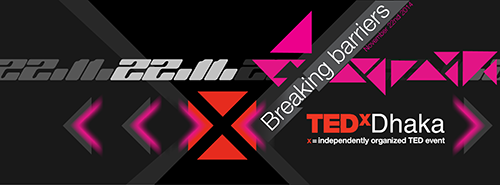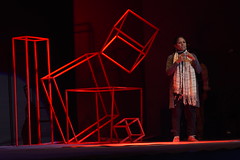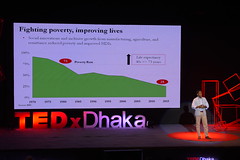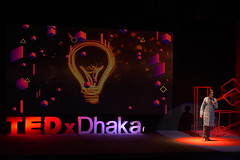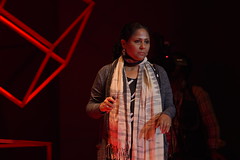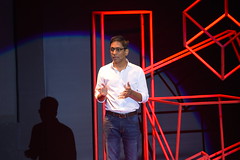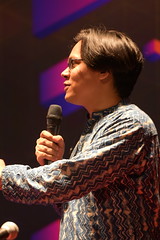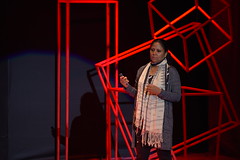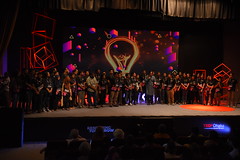TEDxDhaka 2013 kicked off with exciting stories of how the seemingly impossible can be turned into amazing potential. Speakers like founder of the Bangla keyboard script Mehdi Hasan Khan and founder of BDCyclists Mozammel Haque shared their inspiring journeys, while Google Southeast Asia representative Jana Levene shared her idea of spreading infinite knowledge beyond borders.
“I don’t believe in extraordinary people anymore”, declared Mehdi Hasan Khan, the founder of Avro keyboard, the first free Bangla writing software. “Rather, I believe in ordinary people doing extraordinary things because they are desperate.”
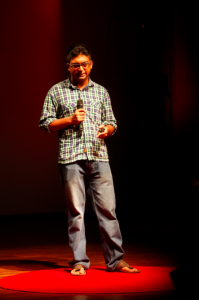
And so, Mehdi, an ordinary 19 year-old boy, headed out to make the Bangla language writable on the Internet. What started as a one-man army trying to build the most efficient transliteration software, ended up attracting a host of bright youngsters, all lending their hands to make Bangla fonts easier to type on the computer.
As Mehdi explained, before the launch of Avro keyboard and its wide circulation, Bangladeshi people had to undergo tiresome training sessions to learn techniques of using Bangla text software that were heavily protected under patents. “It was like locking yourself up in your own prison”, explained Mehdi, condemning the suppression of innovation and accessibility so that a few could make money through patents.
It is not common for an active life promoter to admit that he does not like to exercise. But then again, Mozammel Haque, the founder of BDcyclists, is not like any other health conscious person.
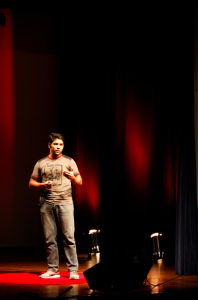
Mozammel’s journey began when he became frustrated with long hours spent in Dhaka traffic. His everyday journeys between home and the office took more than three hours by car. But Mozammel could not afford to spend so much time in traffic.
“Instead of being the problem”, he encouraged the audience, “be a part of the solution.” His take on the solution to the grueling traffic jam of Dhaka, was to start cycling to work. What started off with him wanting to bring about a healthy change in his own life, has now become a city-wide trend.
Cyclists on the main roads of Dhaka are now a relatively common scene, and Mozammel’s BDcyclists has a lot to do with it. More than a thousand cyclists showed up for one of BDcyclists’ biggest events, the Independence Day group ride.
A Googler working in developing new markets, Jane Levene, believes that the next billion users are going to come from developing nations like Bangladesh. She began by explaining how the world is imbalanced. Only a few small areas enjoy the infinite benefits provided by the Internet. She told stories of African fishermen and farmers who were able to start online businesses, raising their income up to 40%! Everyday citizens in Malaysia made their election campaigns more available and promoted a more transparent political culture through Internet portals. In Pakistan, the Internet was successfully used to tackle post-disaster management.
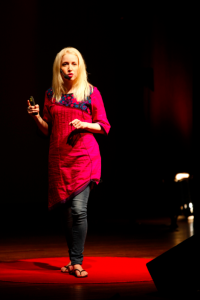
Her speech ended with a question to the audience, asking them to ponder upon the infinite possibilities that the Internet could bring about if made available to the whole world.
“Anything I liked, imagined, I would draw it”, asserted a quirky Fatema Jannat Mony, who has just finished high school and is now working on her animated short film entitled “Moving On”. Now working in Ogniroth studios, Mony, talks about being blinded with inspiration the first time she was introduced to the Internet.
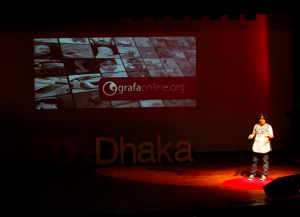
Mony’s passion for art and drawing enthralled the audience. Her life story itself represented the words she ended her speech with — “Never let go of your dreams – be who you want to be.”
Written by the TedxDhaka Social Media Team
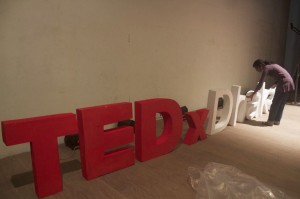
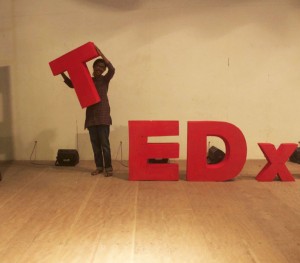
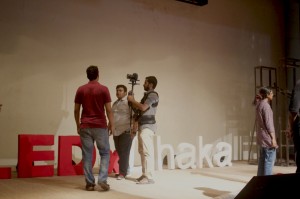
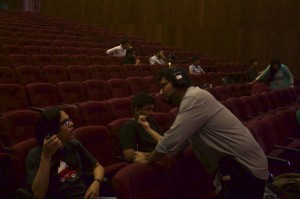
 tag this
tag this